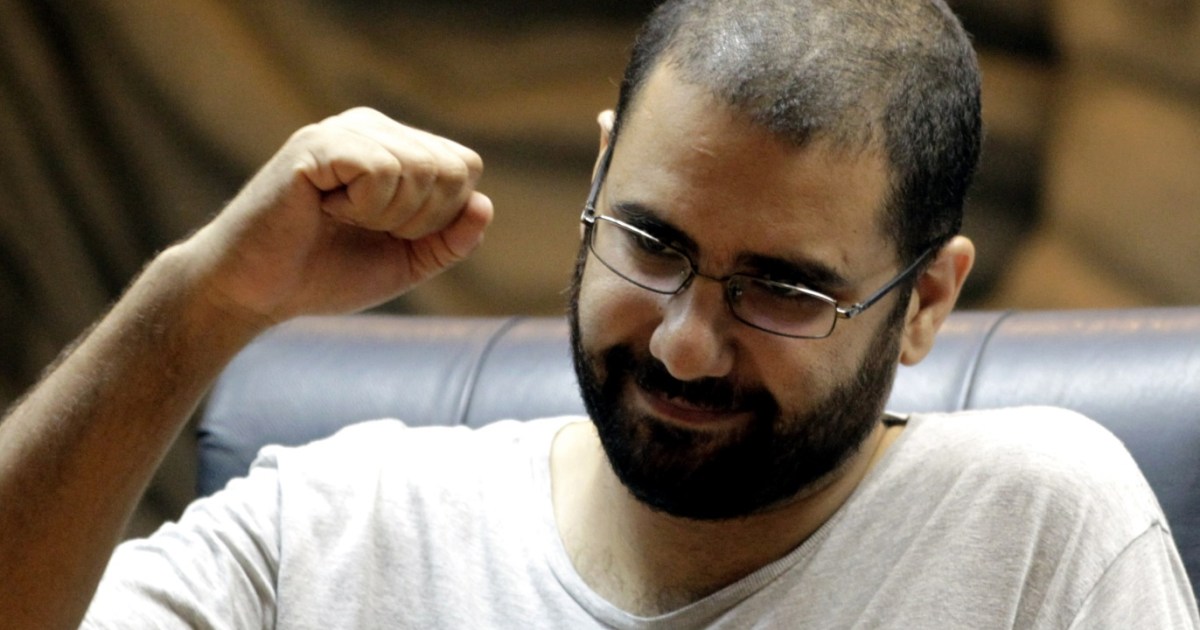A day after calling for a "comprehensive, transparent, and credible" investigation into the death of Egyptian economic researcher Ayman Hodhoud, the United States said it was following up on the case of detained Egyptian dissident Alaa Abdel Fattah.
The new statement was made by Washington's representative to the United Nations, Linda Thomas Greenfield, who spoke Tuesday during a conference she held on the occasion of her country's assumption of the rotating presidency of the UN Security Council this May, at the headquarters of the international organization in New York.
Greenfield said, "We are following the case of detained Egyptian activist Alaa Abdel-Fattah, and we are engaged with the Egyptian government on the human rights file."
The delegate stressed that "the current US administration is very clear on the human rights file, as it is a cornerstone of its foreign policy, and an important part of its relations with any other country," adding that this administration is different from its predecessor (Donald Trump's administration), which did not make the human rights file a priority. Its top priority, but now any country realizes that its relations with Washington are linked to the human rights file.
Alaa Abdel Fattah
It is noteworthy that Alaa Abdel Fattah is one of the most prominent activists of the January 2011 revolution that toppled former President Hosni Mubarak after nearly 30 years in power. He was also arrested in 2019 and sentenced to another 5 years in prison for joining a terrorist group and spreading false news.
Egypt usually rejects international criticism related to the human rights file, and repeatedly affirms its respect for freedoms and rights, and its observance of the conditions of prisoners.
Ayman Hadhoud
The United States had taken a remarkable position towards Egypt, which is one of its most prominent allies in the Middle East, when its State Department demanded, on Monday, a "comprehensive, transparent and credible" investigation into the circumstances of the death of the Egyptian economic researcher Ayman Hadhoud, who died in a psychiatric hospital in Cairo. , where he was referred to the security services who detained him.
"We are deeply concerned about the reports surrounding the death and detention of Egyptian researcher Ayman Hodhoud and allegations that he was tortured while in detention," Ministry spokesman Ned Price said in a press briefing. "We believe that the conditions of his arrest, treatment and death require a comprehensive, transparent and credible investigation without delay." .
Last month, Amnesty International announced - in a statement - that its investigation, based on official records and interviews of witnesses and independent experts who examined leaked photographs of Hodhoud's body, had completed the investigation.
It strongly suggests that he was tortured or ill-treated prior to his death.
For its part, the Egyptian Public Prosecution said that the forensic medical report proved that “the death occurred as a result of a chronic heart condition,” completely ruling out the existence of a criminal suspicion in the death of the Egyptian economic researcher.
However, lawyer Omar Hadhoud, Ayman's brother, rejected the Public Prosecution's statement and insisted on the existence of a criminal suspicion, stressing that the family was not notified of the death until a month after it occurred.
Human rights organizations raised the hypothesis that Hodhoud was subjected to "enforced disappearance" and "torture".
Prisoners and releases
According to the French Press Agency, Egypt is the most populous Arab country with 103 million people, and human rights organizations estimate the number of political prisoners in it at about 60,000.
Interestingly, Hodhoud was a member of the liberal Reform and Development Party and an economic policy advisor to the party's leader, Mohamed Anwar El-Sadat, who is a member of the National Council for Human Rights (government) and has repeatedly declared that he is mediating with the authority for the release of detainees.
A few days ago, Egyptian President Abdel Fattah al-Sisi pardoned more than 3,000 prisoners, among whom was Hossam Mounes, a journalist close to the former presidential candidate Hamdeen Sabahi, who had been convicted of "spreading false news."
Commenting on this, the US State Department spokesman said: “In the same way that we express our concern” about major setbacks in the field of human rights, such as the case of Ayman Hodhoud, “we welcome positive steps,” adding, “We welcome information about Egypt’s release” of Dozens of political prisoners and journalists", calling for more similar steps.

